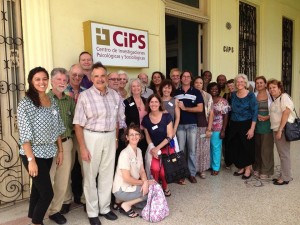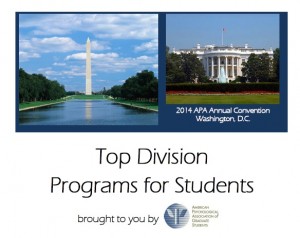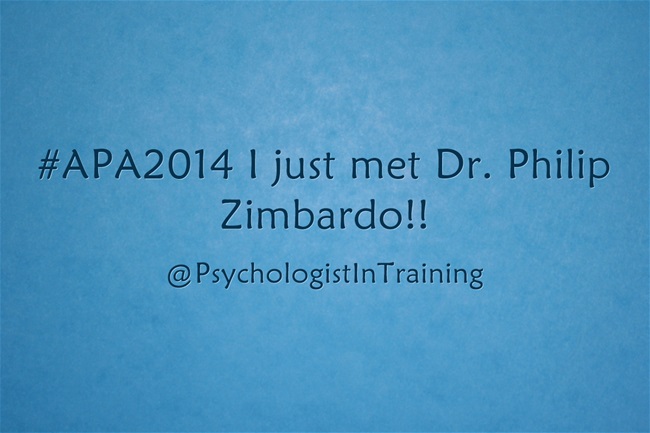Buy the ticket, take the ride. A phrase coined by a very good friend and an itinerant traveler in his own right, the words and underlying meaning were never truer than on my recent trip with APA to Cuba.
When I first received the email alert back in February with subject line: “Psychologists to travel to Cuba,” I was excited beyond words and a bit resigned to the fact that my efforts to save money (I had just decided to give up my apartment in downtown Palo Alto and move back in with my parents) would be temporarily put on hold: there was no way I could miss this trip.
As an undergrad at UCLA, I minored in Latin American studies; Cuba, in particular, was one of my favorite topics of study. I was fascinated by this group of revolutionaries that had overthrown their government in order to make a vast departure from the political structure of the western world. I had also learned about their first-rate education system, with literacy rates higher than those of the United States, and socialized health care despite having little to no access to many goods and services.
The opportunity to travel to learn about their health care system as part of my current training inclinical psychology seemed like it would be an invaluable aspect of my professional growth; even though I knew that I would be in the midst of internship application deadlines at the time of the trip, I had to go.
Landing in Cuba really was like going back in time 50 years – old Fords and Plymouth convertibles, no advertisements for any goods and services except for those promoting public health and supporting ‘la revolucion’, and crumbling architecture representing the remains of both Soviet and colonial influence.
– old Fords and Plymouth convertibles, no advertisements for any goods and services except for those promoting public health and supporting ‘la revolucion’, and crumbling architecture representing the remains of both Soviet and colonial influence.
The week consisted of visits with psychologists from the Cuban Ministry of Public Health, investigators involved in community based participatory research, and practitioners at local clinics and community mental health sites, where we learned in-depth about the comprehensive model of Cuban health care. An opportunity to see the famed Buena Vista Social Club perform live was a special treat and very moving.
As the only graduate student on the trip, I found myself among established psychologists from all over the country – professionals working in VA medical centers, hospitals, universities, private practice, and various capacities for APA – and inspired by the range of their experience and depth of their careers. At the end of each day’s activities, trip leader and Past APA President Suzanne Bennett Johnson would facilitate a debrief session on the thoughts, impressions, and questions that remained with us from the day. Hearing how my fellow group members crafted their questions, provided feedback, and articulated their interests and impressions of the trip, gave me a glimpse into the thought processes of these highly trained, well experienced clinicians, researchers, and doctors. And for the first time I found myself in an interaction with psychologists that wasn’t supervisor/supervisee or advisor/student, but rather as a peer and junior colleague. Being a Spanish speaker and having studied Latin America, I had much of my own unique knowledge to bring to the group, which was a really important moment for me in my development as a psychologist in training – a ‘taking-my-place-at-a-seat-at-the-table’ kind of feeling.
Upon my return, I shared my experience during my Spanish-speaking group supervision at one of my current training sites – a community mental health clinic which provides services to monolingual Spanish speakers. Intrigued by my account of the week, my peers asked how I became involved with the trip and whether my attendance had to do with membership in any particular APA division or group. I explained that while I am a member of APA, in this case, the trip came about just from noticing an email. To which, one of my colleagues responded ‘La moraleja de la historia: lea los emails’.
Buy the ticket, take the ride, and read the emails.

APA group with Cuban researchers at the Center for Psychological and Sociological Investigation


 So you’ve registered for the convention and booked your flights and hotels. You have tried to look at the monster programming book but are feeling overloaded and overwhelmed. What is a grad student to do? Have no fear! The APAGS Convention Committee has some untold secrets to navigating convention!
So you’ve registered for the convention and booked your flights and hotels. You have tried to look at the monster programming book but are feeling overloaded and overwhelmed. What is a grad student to do? Have no fear! The APAGS Convention Committee has some untold secrets to navigating convention! Consider going to one of their business meetings. You can learn a lot about current topics and become more aware of potential opportunities for graduate students.
Consider going to one of their business meetings. You can learn a lot about current topics and become more aware of potential opportunities for graduate students.![MPj04025130000[1]](http://www.gradpsychblog.org/wp-content/uploads/MPj040251300001-300x300.jpg) Free food is everywhere at convention! For example, graduate students can come to the APAGS suite for the Food for Thought breakfasts where they can enjoy breakfast while conversing with some of the field’s most influential psychologists. This year we have Dr. Robert Levine, Dr. Mitchell Prinstein, and Dr. Robert Sternberg. Students can also find free food at some of the presentations. Keep an eye out for large groups of people!
Free food is everywhere at convention! For example, graduate students can come to the APAGS suite for the Food for Thought breakfasts where they can enjoy breakfast while conversing with some of the field’s most influential psychologists. This year we have Dr. Robert Levine, Dr. Mitchell Prinstein, and Dr. Robert Sternberg. Students can also find free food at some of the presentations. Keep an eye out for large groups of people!
 2- Networking
2- Networking![MP900441060[1]](http://www.gradpsychblog.org/wp-content/uploads/MP9004410601-300x300.jpg)

 – old Fords and Plymouth convertibles, no advertisements for any goods and services except for those promoting public health and supporting ‘la revolucion’, and crumbling architecture representing the remains of both Soviet and colonial influence.
– old Fords and Plymouth convertibles, no advertisements for any goods and services except for those promoting public health and supporting ‘la revolucion’, and crumbling architecture representing the remains of both Soviet and colonial influence.